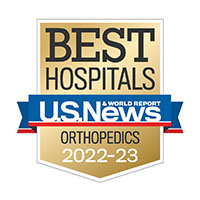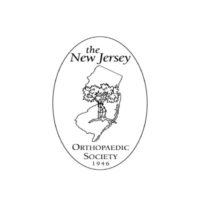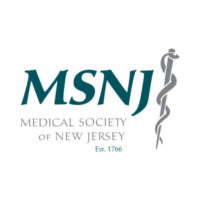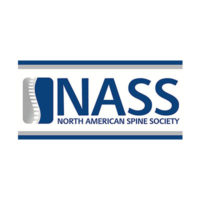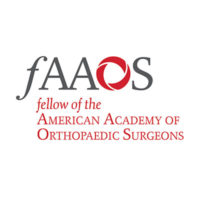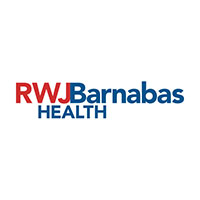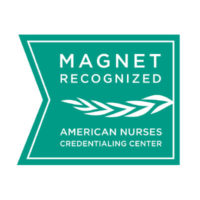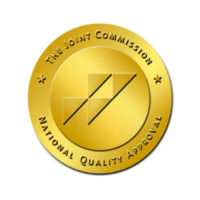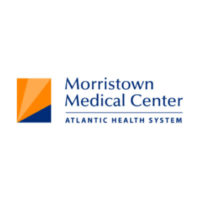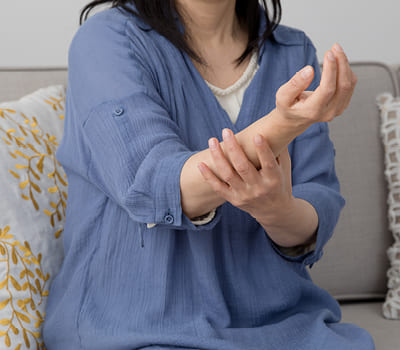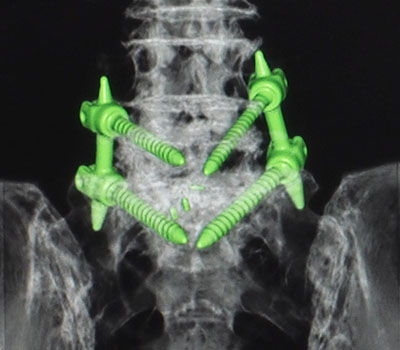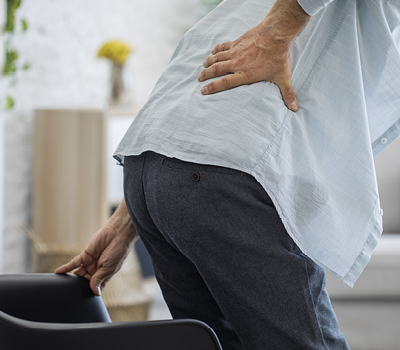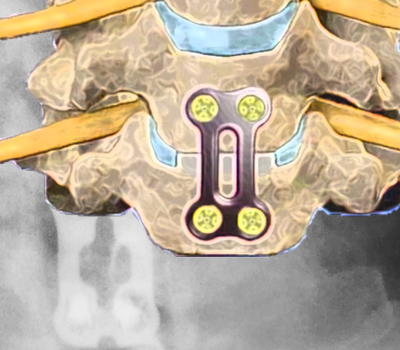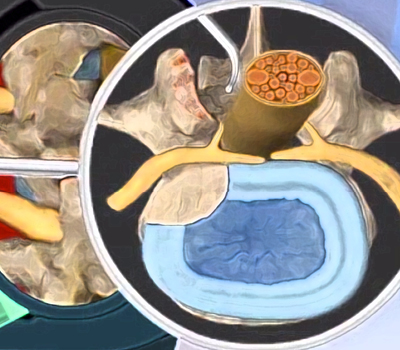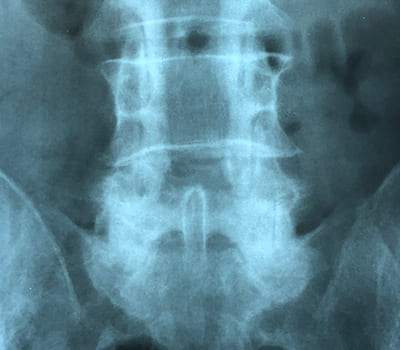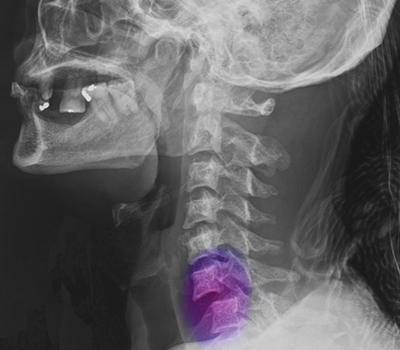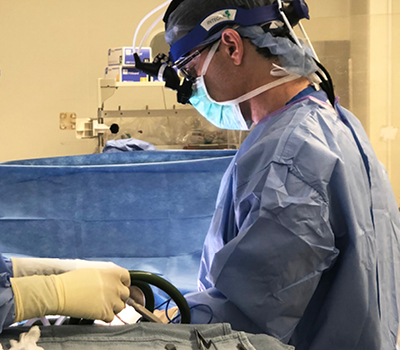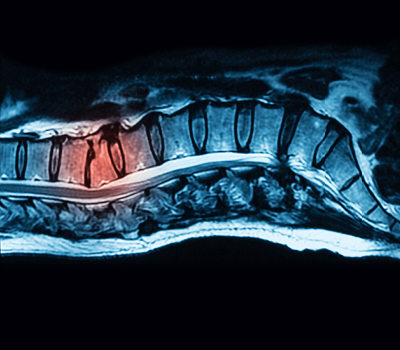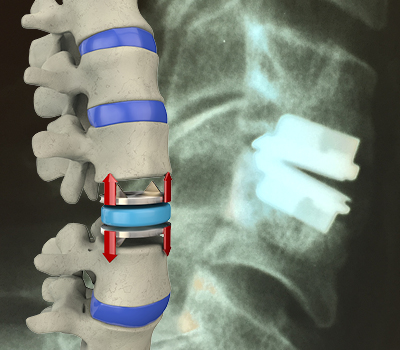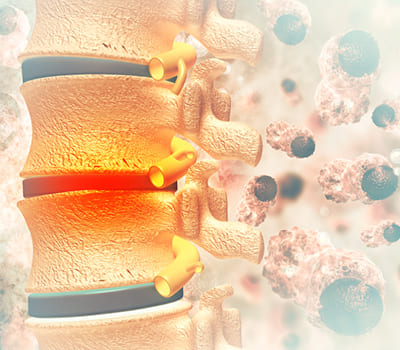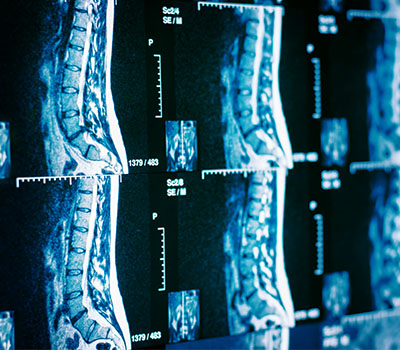CERVICAL DISC HERNIATION
HERNIATED DISC
Cervical Herniated Disc
Q & A
What should I know about the cervical spine?
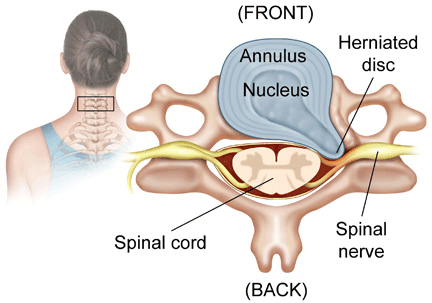
To understand cervical disc herniation, it’s helpful to have a basic understanding of the cervical spine anatomy. This uppermost area of the spine supports the weight of the head. It is made up of seven bones called vertebrae, which are numbered from top to bottom as C1 to C7. The first two, C1 and C2, are specialized vertebrae that enable the head to move up and down, and side to side. Each pair of vertebrae is separated and cushioned by an intervertebral disc. The discs between the vertebrae each have an outer covering called the annulus and a soft, inner core called the nucleus. When a disc in the cervical spine (neck) becomes herniated, its nucleus bulges out through the outer covering and compresses spinal nerves.
What are the symptoms of a cervical disc herniation?
A cervical disc herniation can cause symptoms in the neck, shoulder blades, and along one or both arms – possibly all the way down to the hand. Patients may experience one or more of the following:
- Discomfort, shooting pain, or burning that radiates down the arm
- Neck pain when turning the head or bending the neck
- Pain on or near a shoulder blade
- Weakness in the arm or hand
- Numbness and tingling in the arm
- Limited range of motion
- Difficulty using the arms or hands
For a visual reference you can watch an animation of cervical disc herniation.
Anterior Cervical Discectomy, Fusion
Testimonial
What are the causes of cervical disc herniation?
Herniated cervical discs are usually caused by disc degeneration due to aging and most often occur in people who are 35 to 55. Sometimes trauma, heavy lifting or sudden twisting can cause a disc to suddenly rupture.
How is cervical disc herniation diagnosed?
Accurate diagnosis is the key to appropriate and effective treatment for your pain. Doctors Giordano and Nachwalter are highly experienced in diagnosing spinal disorders as well as providing both surgical and non-surgical care. During your consultation, your doctor will:
- Review your symptoms (such as where you have pain, weakness, and numbness) and what limitations these symptoms place on your everyday activities
- Perform a physical exam including an assessment of nerve function, muscle strength, response to sensory input (such as pressure and sensations such as touch) and check reflexes
- Evaluate your medical history
- Order diagnostic tests such as x-rays, CT and MRI scans or review the results of scans you have already had
Your doctor will review treatment options once he has diagnosed your condition and determined the cause of your symptoms. He will review the risks and benefits of each option and assist you in deciding which one is best for you.
What are the treatments for cervical disc herniation?
Dr. Giordano and Dr. Nachwalter both take a conservative approach to treatment by recommending non-surgical treatments whenever possible. Treatment options for cervical disc herniation may include one or a combination of the following:
- Modified activity
- Medication
- Physical therapy
- A surgical procedure such as anterior cervical discectomy and fusion or disc replacement
Atlantic Spine Specialists
SPECIALTIES & CONDITIONS
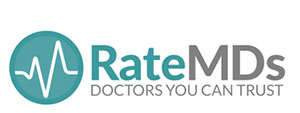 88 Reviews
88 Reviews
 120 Reviews
120 Reviews
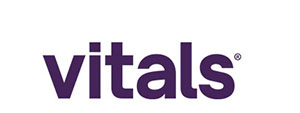 149 Reviews
149 Reviews
 4 Reviews
4 Reviews
